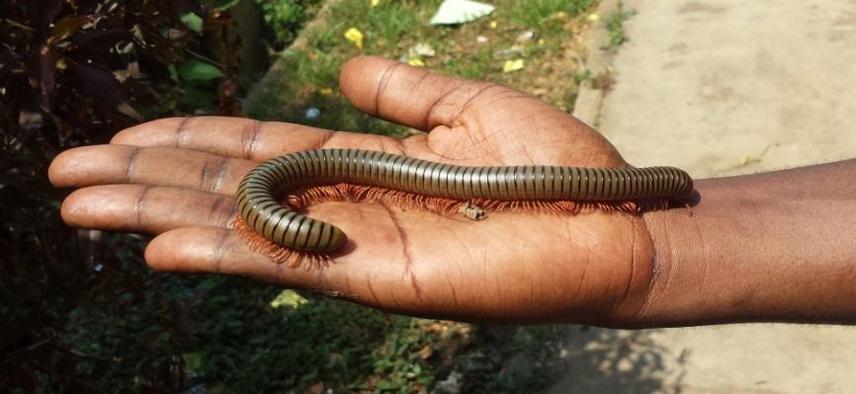Paul Serge Mbenoun Masse
Other projects
The overall aim of this project is to assess the millipede faunas across a gradient of forest disturbance, in order to understand their role as bio-indicator in southern Cameroon rainforest.

Diplopoda are terrestrial arthropods, commonly known as millipedes. Millipedes are important bioindicators among soil animals because of their sensitivity to habitat change in consequence of deforestation, burning, climate change and habitat disturbance. Indeed, most millipedes are represented by highly adapted, largely very local species and their habitat requirements are highly specific. Human disturbances of natural vegetation create hostile soil conditions hostile to diplopods. These activities mainly negatively affect the diversity, composition and population structure of diplopod fauna. As a consequence of their specific habitat requirements, millipedes are extremely susceptible to shocks that may alter their environments. Considering the fact that human activities are responsible for forest destruction throughout the world, it is essential to understand the crucial role the millipedes play as bio-indicators to prevent further disturbance of humid tropical rainforest. Some studies have been performed following the same approach in many tropical countries, but in Cameroon no informations available on this subject.
This project is expected to bring out scientific evidence of the crucial role of millipedes as bio-indicators of environment change in southern Cameroon rainforest. Evidence of such roles of millipedes should be used as an additional argument for their protection. The data produced will be immediately relevant to local conservation organizations’ programs and allow decision makers to increase protective measures where necessary and promote the protection of these species.